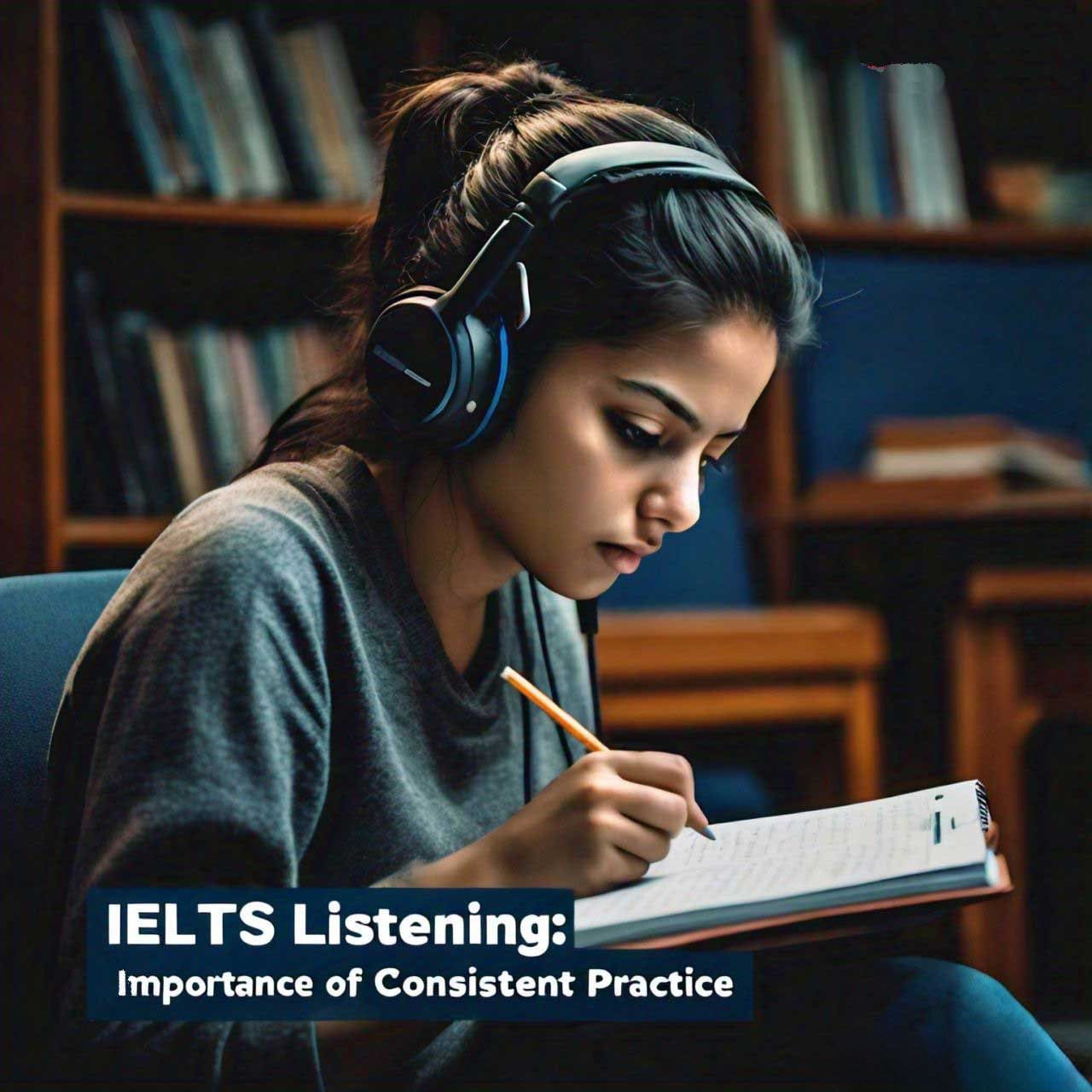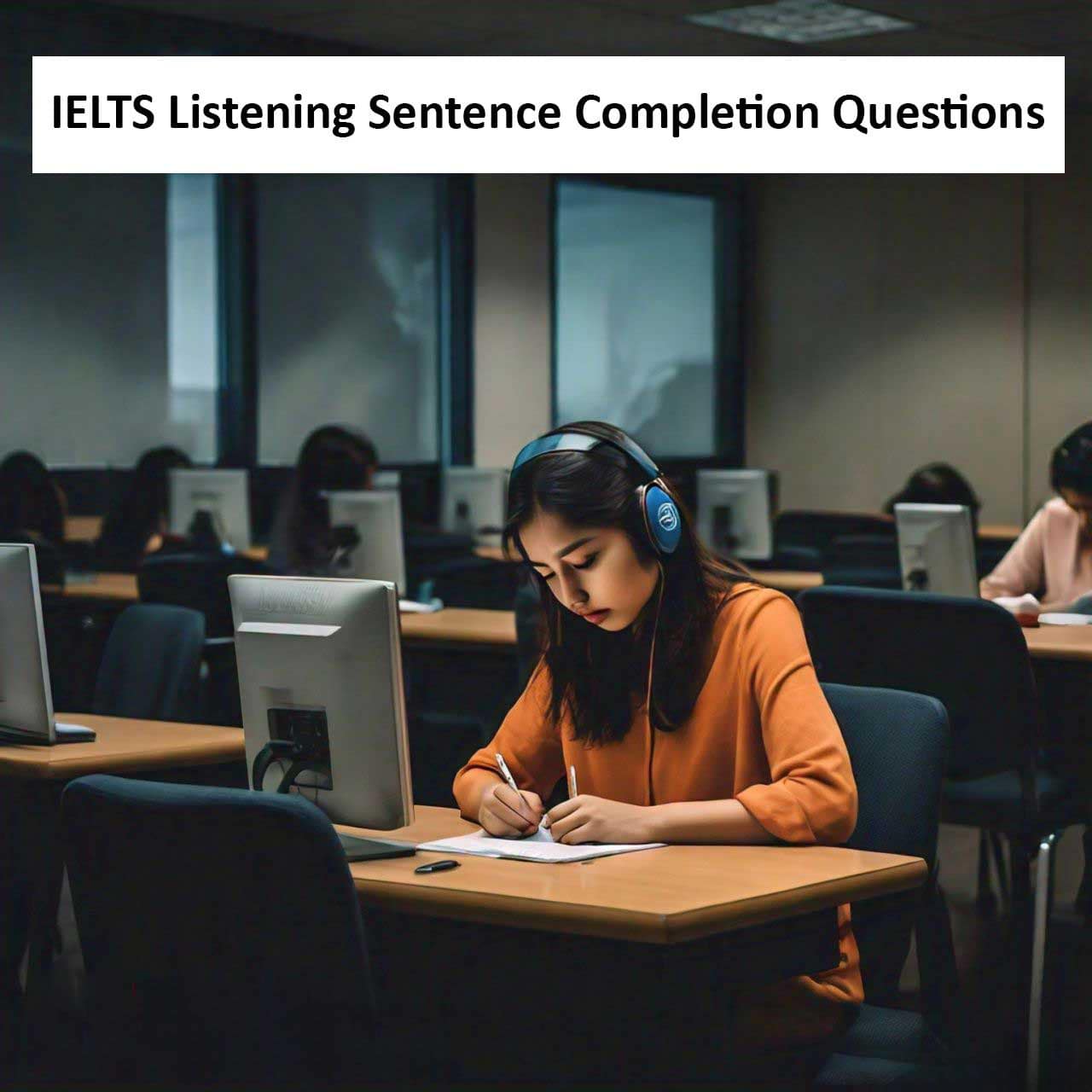The IELTS Listening test is a critical component of the IELTS exam, designed to assess a candidate’s ability to understand spoken English in various contexts. With 40 questions spread across four sections, each increasing in difficulty, achieving a high score requires more than just a good ear for the language. Consistent practice is key to excelling in this section. Here’s why it’s important and how you can make the most of your practice sessions.
Table of Contents
Why Consistent Practice Matters
1. Familiarity with the Test Format
The IELTS Listening test follows a specific format, including various types of questions such as multiple choice, matching, plan/map/diagram labeling, form/note/table/flow-chart/summary completion, and sentence completion. Regular practice helps you become familiar with these formats, reducing anxiety and boosting your confidence on test day.
2. Improving Listening Skills
Listening skills are developed over time. Consistent practice helps you improve your ability to understand different accents, speeds of speech, and the use of informal and formal language. This is crucial as the IELTS Listening test includes speakers from various English-speaking countries.
3. Enhancing Concentration and Focus
The listening test requires you to listen to recordings and answer questions simultaneously, which demands high levels of concentration. Regular practice sessions help train your brain to maintain focus for extended periods, making it easier to manage during the actual test.
4. Developing Effective Note-Taking Skills
Taking quick, effective notes is essential during the IELTS Listening test. Consistent practice allows you to develop and refine your note-taking strategies, ensuring you can capture key information accurately without missing important details.
5. Building Speed and Accuracy
Regular practice helps you improve both your speed and accuracy. You’ll learn to quickly identify keywords, follow the flow of information, and answer questions more efficiently. This is particularly important as the test progresses and the questions become more challenging.
How to Practice Effectively
1. Use Official IELTS Practice Materials
Start with official IELTS practice tests and materials. These resources are designed to closely mimic the actual test, providing an accurate representation of the test format, question types, and difficulty level.
2. Diversify Your Listening Sources
Expand your practice beyond IELTS materials. Listen to podcasts, watch English-language news programs, and engage with various media that feature different accents and speaking styles. This will help you become more adaptable to the diverse accents you might encounter in the test.
3. Simulate Test Conditions
Regularly practice under test-like conditions. Set aside uninterrupted time, use headphones, and complete sections in one sitting to mimic the pressure and environment of the actual test. This helps build your stamina and resilience.
4. Analyze Your Mistakes
After each practice session, review your answers to understand where you went wrong. Identify common mistakes or recurring challenges and focus on these areas in subsequent practice sessions.
5. Practice Note-Taking Techniques
Work on your note-taking skills by practicing with short audio clips. Try to capture main ideas, supporting details, and keywords quickly. Experiment with different note-taking methods to find what works best for you.
6. Work on Time Management
Time management is crucial during the test. Practice completing each section within the allotted time. Use a timer to help you get used to the pacing and ensure you can answer all questions without rushing.
7. Join a Study Group or Seek Professional Help
Joining a study group or working with a tutor can provide additional support and motivation. Discussing strategies, sharing resources, and receiving feedback from others can enhance your preparation.
Consistency is Key
Consistent practice is essential for success in the IELTS Listening test. It helps you become familiar with the test format, improves your listening skills, and builds your confidence. By incorporating regular, focused practice sessions into your study routine, you’ll be better prepared to tackle the listening section and achieve your desired score.
Remember, the journey to mastering IELTS Listening is a marathon, not a sprint. Dedicate time each day to practice, stay patient, and keep pushing yourself. Your hard work and consistency will pay off on test day. Good luck!



